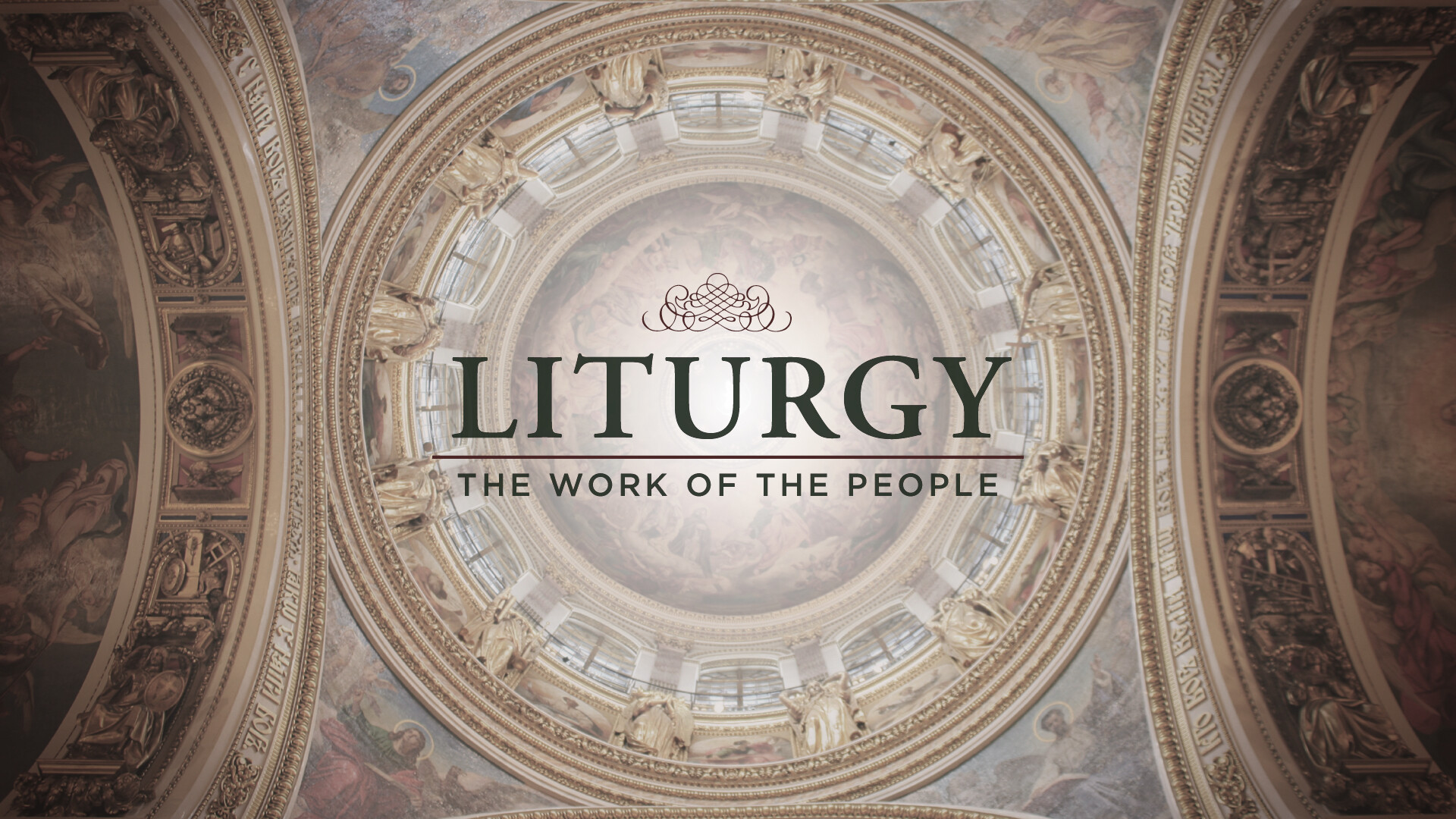Collects are little prayers that gather up the Biblical themes of the day’s readings. During the service of Holy Eucharist, the Collect of the Day is said at the beginning of the service, right after the Gloria. During Advent and Lent, the Collect is said right after the Kyrie Eleison (Lord Have Mercy.) The BCP has many other collects that are said at the end of the Daily Office, on special occasions, or as prayers and thanksgivings for all sorts of people and reasons (BCP 810-841.) These prayers are little jewels, many of which have a fascinating history that dates back to the dark Middle Ages. Additionally, most collects have a 4-part structure that is as wise as it is ancient.
Many of our collects first appeared in the Leonine sacramentary, attributed to Pope Leo the Great (AD 440-461) and revised at various points during the history of the Church. A second set of ancient prayers derive from the Gelasian sacramentary, written in the 7th century for use at the St. Denis Abbey in Paris. A third set derived from the Gregorian sacramentary, dedicated to Pope Gregory the Great (590-604,) but written under the leadership of Pope Adrian I in the 780’s. A fourth set came from various other 9th-15th century sacramentaries. Thomas Cranmer used many of these collects unchanged when writing his prayer books. He changed some collects to reduce their Roman Catholic themes and better align with the reformed theology of salvation by grace alone, through faith alone, in Christ alone. A fifth set of collects are called “Cranmerian” because they were composed by Cranmer or his staff for specific Sundays and feast days in his 1549 and 1552 prayer books. Lastly, a set of collects have been introduced for specific BCP revisions, many written or edited at the time of the revision.
Most ancient collects have a familiar 4-part structure: (1) Ascription: All collects tell us something about God. (2) Petition: Collects ask for a specific blessing or action from God. (3) Aspiration: Collects give us the reason why we ask what we ask or what we hope to accomplish. You will see words like “that” or “so that” precede the aspiration. (4) Trinitarian ending: Collects end by praying to the Father, through the Son, by the power of the Holy Spirit. When you see a collect that lacks a Trinitarian formula, these are usually modern collects, which end with phrases like, “In Jesus Name,” “Through your Holy Name,” etc.
Below is the structure and a brief history of the collects for Ash Wednesday and the Sundays in the 2021 Lenten Season. I hope you save these brief reflections to aid your understanding of our Lenten collects this year. I also hope that these brief reflections inspire you to pay closer attention to these collects, knowing that you are joining fellow Christians from centuries past in prayer.
ASH WEDNESDAY
(Ascription) Almighty and everlasting God, you hate nothing you have made and forgive the sins of all who are penitent: (Petition) Create and make in us new and contrite hearts, (Aspiration) that we, worthily lamenting our sins and acknowledging our wretchedness, may obtain of you, the God of all mercy, perfect remission and forgiveness; (Trinitarian ending) through Jesus Christ our Lord, who with you and the Holy Spirit lives and reigns, one God, in glory everlasting. Amen.
On a day when all the readings are penitential, this collect acknowledges that God is merciful and forgiving. According to the “Commentary on the American Prayer Book” by Marion J. Hatchett (Which I will quote throughout this article,) this collect has historical roots and echoes of collects found in the Gelasian and Gregorian sacramentaries, where the petition asked for an “undisturbed devotion” to comply with the “sacred solemnities of the fasts” demanded at Lent. Cranmer composed the collect as we find it today for his 1549 Prayer Book. “The petition is obviously inspired by Psalm 51 which has traditionally been used on this day.” Originally, this collect was to be repeated every day of Lent “until Palm Sunday” (BCP, 1928.) This tradition changed in the 1979 Prayer Book.
LENT 1 (Sunday, February 21, 2021)
(Ascription) Almighty God, whose blessed Son was led by the Spirit to be tempted by Satan: (Petition A) Come quickly to help us who are assaulted by many temptations; (Aspiration) and, as you know the weaknesses of each of us, (Petition B) let each one find you mighty to save; (Trinitarian ending) through Jesus Christ your Son our Lord, who lives and reigns with you and the Holy Spirit, one God, now and for ever. Amen.
Some collects give you a two-part petition and often sandwich the aspiration in between. In this case the aspiration is “(because, as you, since) you know the weakness of each of us.” When I teach a course on this, I often reunite the separated petitions and add the aspiration after. This makes the collect a bit clearer for the reader. According to Hatchett, the original collect for this Sunday was Collect no. 166 in the Gregorian sacramentary, but it had heavy “works” or “Pelagian” overtones. Cranmer chose to write a new collect “With reference to the Gospel lection and without the Pelagian overtone or the implication that we must strive to obtain the gifts which God is anxious to give to those who seek.” Cranmer’s collect was used for centuries, but the collect in our 1979 BCP is a revised version of a prayer found in William Bright’s Ancient Collects, which refers to all Gospel readings for all three years A, B, and C.
LENT 2 (Sunday, February 28, 2021)
(Ascription) O God, whose glory it is always to have mercy: (Petition) Be gracious to all who have gone astray from your ways, (Aspiration) (So that you may) bring them again with penitent hearts and steadfast faith to embrace and hold fast the unchangeable truth of your Word, Jesus Christ your Son (Trinitarian ending) who with you and the Holy Spirit lives and reigns, one God, for ever and ever. Amen.
This is a true ancient collect of our church, which is found in the Gallican missal, the Gelasian sacramentary, and the Gregorian sacramentary. “In these books it follows a bidding to pray for heretics and schismatics that they may be delivered from their errors and recalled to the catholic and apostolic church. In its new context as a Sunday collect it refers to those who have abandoned the practice of Christian faith.” (Ibid.) The idea that God’s splendor, glory, majesty, and power is manifested primarily in his mercy should be a source of comfort for all of us. Mercy is one of God’s own attributes. God’s mercy is the natural consequence of his love for humanity.
LENT 3 (Sunday, March 7, 2021)
(Ascription) Almighty God, you know that we have no power in ourselves to help ourselves: (Petition) Keep us both outwardly in our bodies and inwardly in our souls, (Aspiration) that we may be defended from all adversities which may happen to the body, and from all evil thoughts which may assault and hurt the soul; (Trinitarian ending) through Jesus Christ our Lord, who lives and reigns with you and the Holy Spirit, one God, for ever and ever. Amen.
This collect acknowledges that assaults on the body can be just as detrimental as assaults on our soul. God’s power to help us at these moments of trouble is always constant and trustworthy. Whereas we have no power to help ourselves, God is always ready to intervene on behalf of those who put their trust in him. According to Hatchett, in the original source, the Gregorian sacramentary, this collect was used for the Second Sunday in Lent. “In the present book it is shifted to the third Sunday in Lent… The text reminds us that God’s protection is necessary to defend us from assaults upon the soul as well as those on the body.” (Ibid.)
LENT 4 (Sunday, March 14, 2021)
(Ascription) Gracious Father, whose blessed Son Jesus Christ came down from heaven to be the true bread which gives life to the world: (Petition) Evermore give us this bread, (Aspiration) that he may live in us, and we in him; (Trinitarian ending) who lives and reigns with you and the Holy Spirit, one God, now and for ever. Amen.
The traditional collect for this Sunday was originally found in the Gregorian sacramentary and it asked for “relief from deserved punishment.” That collect was replaced by the current collect originally written by F. B. McNutt (The Prayer Manual, London: Mowbray, 1952, no. 488.) There was a time when Lent began on the Monday after the first Sunday in Lent and not on Ash Wednesday. When that was the case, “this day marked the half-way point in the season and was observed with feasting.” (Ibid.) The halfway feasting gave rise to various traditions. Some churches encouraged their faithful to attend mass at the “Mother Church” or the cathedral where they made special offerings. Servants and apprentices were given this Sunday off to visit their parents and often would bring a “mothering cake” as a present (Ibid.)
LENT 5 (Sunday, March 21, 2021)
(Ascription) Almighty God, you alone can bring into order the unruly wills and affections of sinners: (Petition) Grant your people grace to love what you command and desire what you promise; (Aspiration) that, among the swift and varied changes of the world, our hearts may surely there be fixed where true joys are to be found; (Trinitarian ending) through Jesus Christ our Lord, who lives and reigns with you and the Holy Spirit, one God, now and for ever. Amen.
This ancient collect was often appointed to the Easter season and can be found on the Gelasian sacramentary, the supplement of the Gregorian sacramentary, and the earliest prayer books. Cranmer accepted the collect with some minor revisions. The current prayer book moved this collect from the Easter season to the current place to replace an ancient Gregorian collect that was not suited for this Sunday. The petition asks for grace to love God’s commandments and desire his promises. It acknowledges that doing God’s will is often very hard because we would rather do things our own way. Yet it is only in doing God’s will that true joy can be found.
I hope you pay some attention to these beautiful collects. We are one of the few denominations that still pray these ancient prayers and keep them alive through use. To me, these prayers are a gift from generations past that must be read, prayed with, and studied.
May our Lord continue to bless you,
Fr. Roman+





